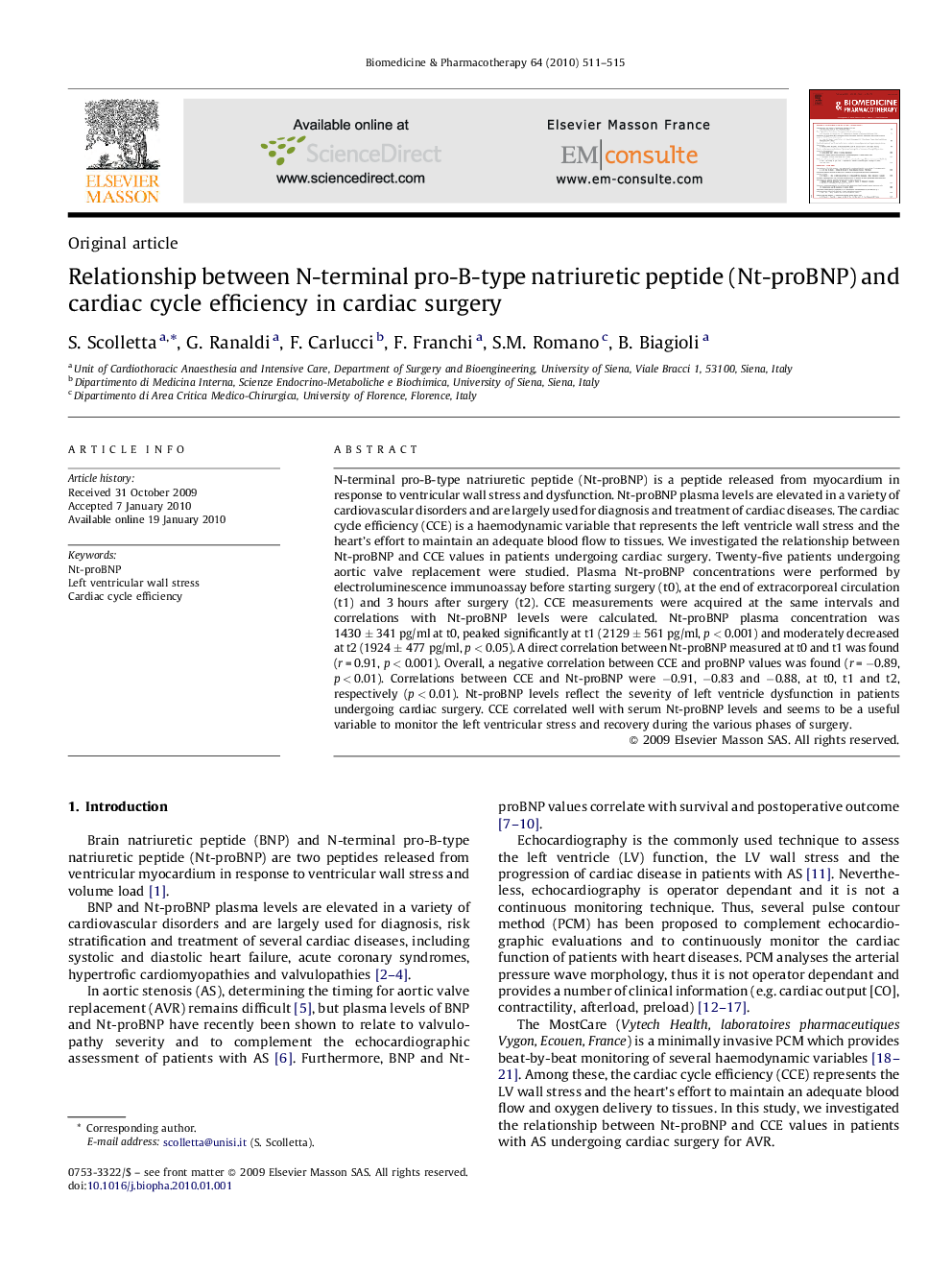| Article ID | Journal | Published Year | Pages | File Type |
|---|---|---|---|---|
| 2524858 | Biomedicine & Pharmacotherapy | 2010 | 5 Pages |
N-terminal pro-B-type natriuretic peptide (Nt-proBNP) is a peptide released from myocardium in response to ventricular wall stress and dysfunction. Nt-proBNP plasma levels are elevated in a variety of cardiovascular disorders and are largely used for diagnosis and treatment of cardiac diseases. The cardiac cycle efficiency (CCE) is a haemodynamic variable that represents the left ventricle wall stress and the heart's effort to maintain an adequate blood flow to tissues. We investigated the relationship between Nt-proBNP and CCE values in patients undergoing cardiac surgery. Twenty-five patients undergoing aortic valve replacement were studied. Plasma Nt-proBNP concentrations were performed by electroluminescence immunoassay before starting surgery (t0), at the end of extracorporeal circulation (t1) and 3 hours after surgery (t2). CCE measurements were acquired at the same intervals and correlations with Nt-proBNP levels were calculated. Nt-proBNP plasma concentration was 1430 ± 341 pg/ml at t0, peaked significantly at t1 (2129 ± 561 pg/ml, p < 0.001) and moderately decreased at t2 (1924 ± 477 pg/ml, p < 0.05). A direct correlation between Nt-proBNP measured at t0 and t1 was found (r = 0.91, p < 0.001). Overall, a negative correlation between CCE and proBNP values was found (r = −0.89, p < 0.01). Correlations between CCE and Nt-proBNP were −0.91, −0.83 and −0.88, at t0, t1 and t2, respectively (p < 0.01). Nt-proBNP levels reflect the severity of left ventricle dysfunction in patients undergoing cardiac surgery. CCE correlated well with serum Nt-proBNP levels and seems to be a useful variable to monitor the left ventricular stress and recovery during the various phases of surgery.
